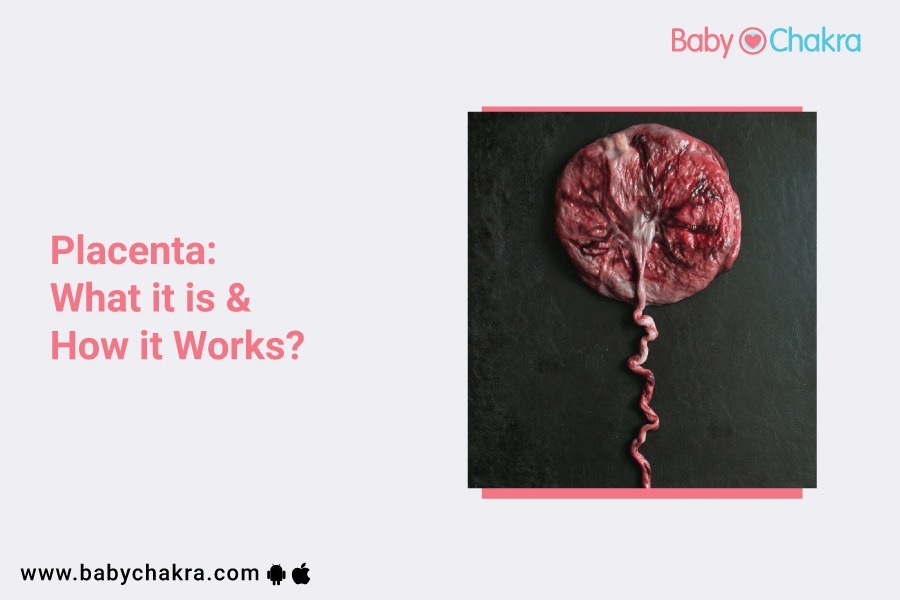
Placenta: What it is and How it Works?
14 Nov 2021 | 2 min Read
Babychakra
Author | 1369 Articles
The placenta plays a crucial role during pregnancy. It is an organ that develops in your uterus during pregnancy. The placenta provides oxygen and nutrients to your growing baby and removes waste products from your baby’s blood. The placenta attaches to the wall of your uterus, and the umbilical cord arises from it. Generally, the placenta is located on the top side of your uterus, but if it is found on the lower side, it is called the low-lying placenta or placenta previa.
What Affects Placenta Health?
Various factors affect the placenta health during pregnancy. For example,
- Maternal Age: The placental problem usually occurs in late pregnancies, like conceiving after 40.
- High Blood Pressure. High blood pressure affects the health of the placenta causing pregnancy complications.
- Multiple pregnancies. If you are carrying twins or more, there can be chances of some placental issues.
- Any previous uterine surgery. If you have had any surgery related to the uterus, like c-section delivery or fibroids, you may have the risk of a placental problem.
What are the signs of a Placental Problem?
Consult your doctor immediately if you see the following symptoms of the placental problem:
- Vaginal bleeding
- Abdominal Pain
- Back Pain
- Uterine Contractions
How is Placenta delivered?
If you are undergoing vaginal delivery, you’ll also deliver the placenta vaginally, known as the third stage of labour.
After you give birth, you’ll continue to feel mild contractions. Your doctor might give you a medication called oxytocin to continue uterine contractions and reduce postpartum bleeding. Your doctor might also massage your lower abdomen to encourage your uterus to contract and expel the placenta. You might be asked to push one more time to deliver the placenta.
If you have a C-section, your doctor will remove the placenta from your uterus during the procedure.
If you have questions about the placenta or placental problems during pregnancy, talk to your doctor. They can help you better understand the placenta’s role during your pregnancy.
Do you think this article was helpful to you? If yes, please hit the ‘LIKE’ button and ‘SHARE’ it with your friends and family.
A


Suggestions offered by doctors on BabyChakra are of advisory nature i.e., for educational and informational purposes only. Content posted on, created for, or compiled by BabyChakra is not intended or designed to replace your doctor's independent judgment about any symptom, condition, or the appropriateness or risks of a procedure or treatment for a given person.
